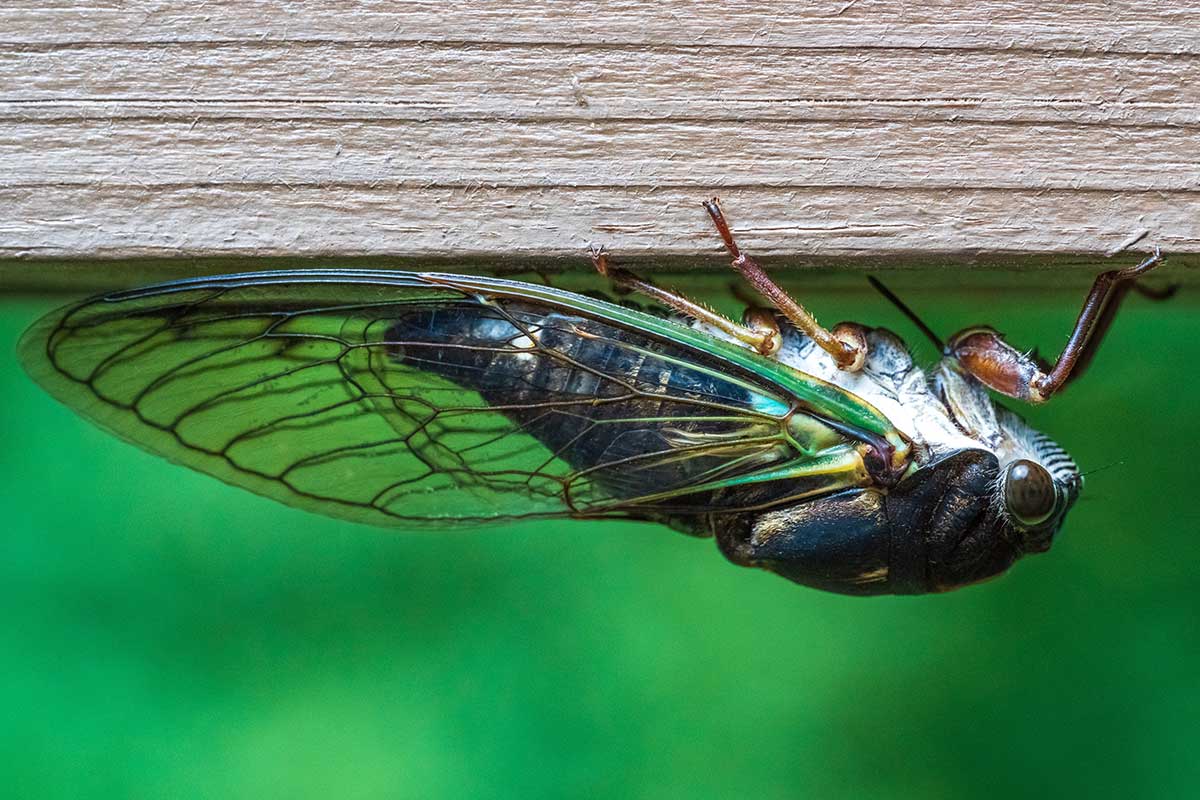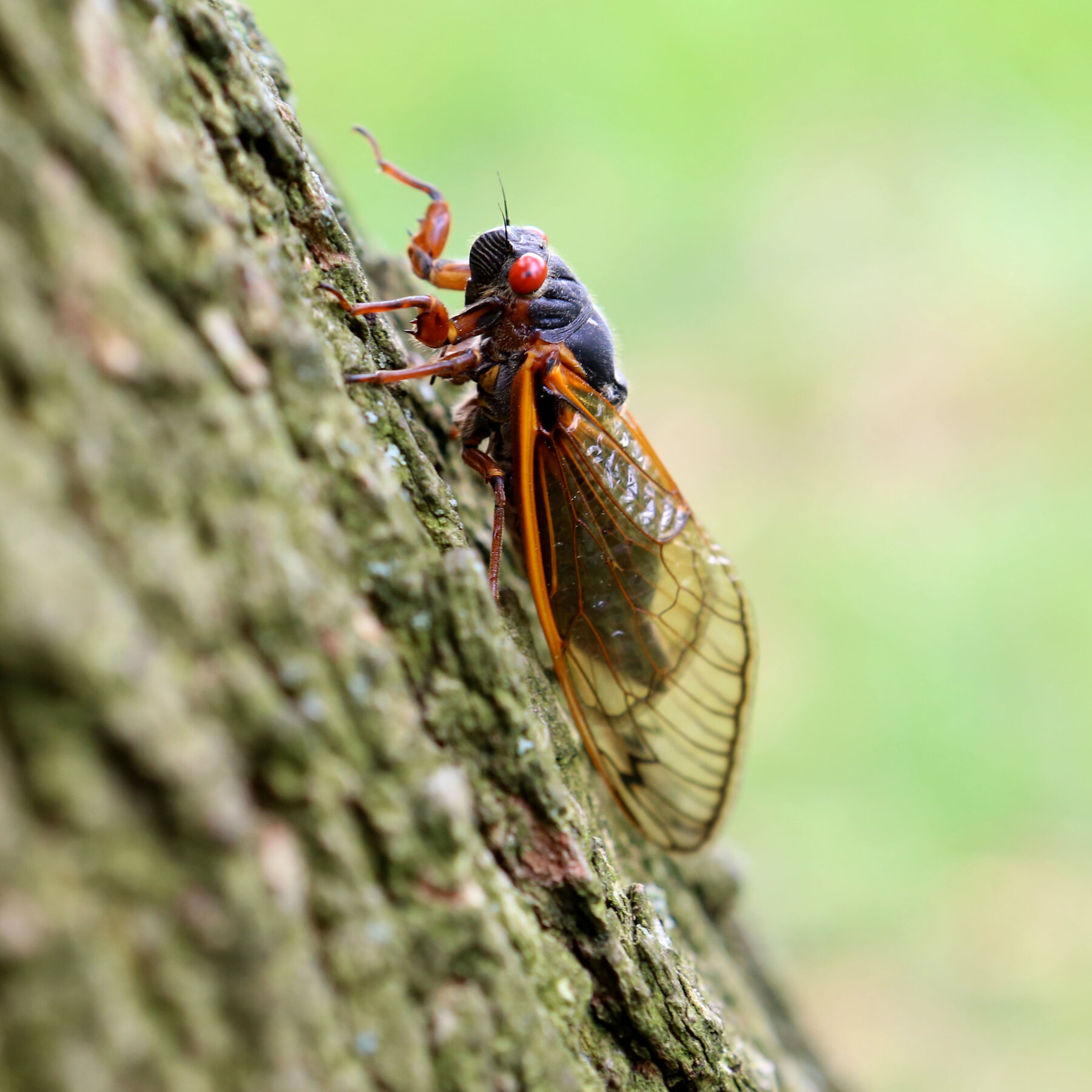When someone asks what you remember from the summer of 2021, do you say a “cloud of fat 2-inch-long bugs with bulging red eyes”?
If you were in Northern Virginia that summer, you just might. That was the last time periodical cicadas had a major emergence in the area. This year, they’re back with a vengeance. Sort of.
Cicadas are stirring beneath the Earth's surface once again. This time, the stage is set for what could be the biggest emergence in centuries.
Depending on the brood, these creatures spend either 13 or 17 years underground, patiently awaiting their moment. As soil temperatures climb to around 64 degrees Fahrenheit, they begin their ascent, signaling the start of their fleeting journey to the surface. Once there, the insects mate, lay eggs, and die, after spending only three to five weeks above ground.
Brood XIX is currently tunneling through the soil in parts of the Deep South, and Brood XII from Northern Illinois will soon follow suit (our visitors back in 2021 were from Brood X). This convergence of events means that 16 states will witness the emergence, including — you guessed it — Virginia.
Back in 2021, when Brood X paid us a visit, we saw billions of cicadas swarm areas of the East and West, their numbers so large in the DMV area that they even showed up on National Weather Service radar. If you thought that was bad, brace yourself. This year’s dual emergence — expected to peak in late-May 2024 — could produce more than 1 trillion cicadas!
To grasp the sheer magnitude of this natural phenomenon, consider this: approximately 2 million cicadas can burrow through a patch of ground the size of a football field. Collectively, those insects would weigh more than 8,000 pounds, surpassing the weight of a hippopotamus.
If you’re a cicada-hater like me, don’t fret. Not only are these critters completely harmless, but we are unlikely to see many in Cameron Station this year owing to Virginia’s position on the fringes of Brood XIX's range. The fact that our neighborhood will not be the center of this historic convergence is just fine by me.
 Photos courtesy of Northern Virginia Magazine (top) and New York Times (bottom).
Photos courtesy of Northern Virginia Magazine (top) and New York Times (bottom).
But, if you are looking for an experience of biblical proportions, head to Springfield, IL, or northeast Missouri, where the two broods may overlap as early as mid-May.
“Imagine as many insects as you possibly can coming out of the ground in a very short window of time. Now add some more — a lot more,” Tad Yankoski, senior entomologist at the Sophia M. Sachs Butterfly House in St. Louis told a blog for the Missouri Botanical Garden. “They’ll be everywhere, they’ll be loud, and you won’t be able to avoid them.”
While our contribution to the cicada chorus is expected to be minimal, we will undoubtedly hear a few around the neighborhood. Their trademark loud noise clocks in at 73 decibels, a level that rivals a garbage disposal or vacuum cleaner.
Despite the fear that cicadas evoke in some, I must give credit where credit is due. Cicada broods play a vital role in the ecosystem: Birds and other animals eat them during their brief presence above ground. Cicadas have also inspired art, food, fashion, and music. In 2021, you could find cicada tacos at a market in Leesburg, VA, and a cicada-inspired beer at 7 Locks Brewing in Rockville, MD. Some simply appreciate these critters because their massive, periodical invasion is a chance to see a glorious and somewhat mysterious natural event.
So, while I'm traipsing around Cameron Station in my beekeeper suit this summer, attempting to avoid the flight path of these blind, erratic — but harmless — insects, I’ll try to remember that the hordes emerging from the earth are not a sign of the end of times. Instead, their visit serves as a testament to the resilience and intricacy of the natural world.
Now, hand me that fly swatter.
Emma Watson has been a Cameron Station homeowner since 2022 and is the current Editor of The Compass. She strongly dislikes cicadas. She is a University of California Santa Cruz graduate (Go, Banana Slugs!) and a Notre Dame fan (Go, Irish!) who hails from Los Angeles, California. When she’s not walking around the neighborhood with her husband and their dog, Duke, she is trying to lift heavy things at the gym or exploring nearby restaurants.
This blog was inspired by “People Are Planning ‘Cicada-Cations’ To Hear Natural Symphony,” written by Beth Dalby for The Patch.

Follow